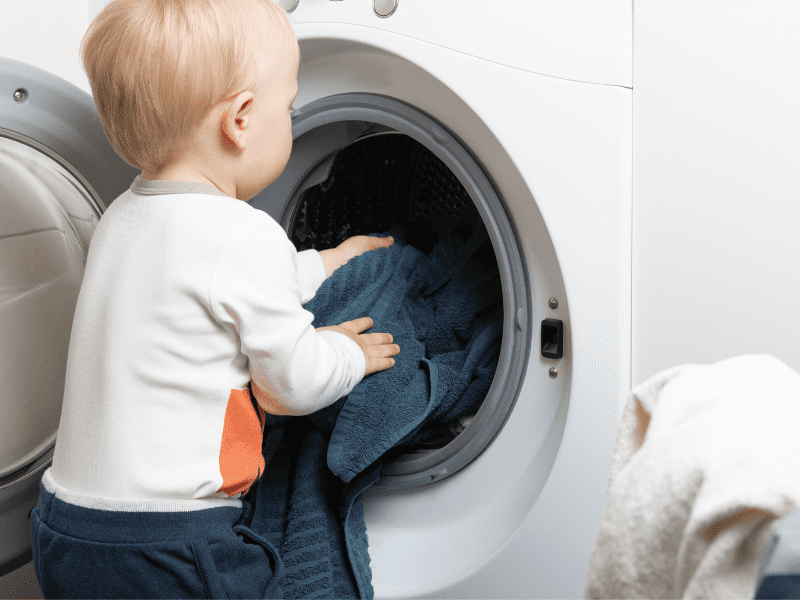12 Pieces of Advice on How to Raise Responsible Children
One of our ultimate goals in life is to raise functional adults who work hard and have a good life. That starts with learning how to raise responsible children and teaching them all they need to know about responsibility.
It’s hard to imagine our little bouncing toddlers as adults, but the reality is that is the goal. One day, our toddlers will grow up, leave our home, and become adults in this big world. Unfortunately, we all know adults who lack the skills needed to functional properly, and it’s often because their parents failed to teach them how to be responsible from a young age.
What does it mean for a child to be responsible?
It starts with taking responsibility for their messes and working on their daily chores. Later, it grows into teaching your child how to manage their money and working for pay outside of the family. It is a gradual process, so let’s take a look at how to raise responsible children and what parents need to do now.
Pin this blog for later! ↓
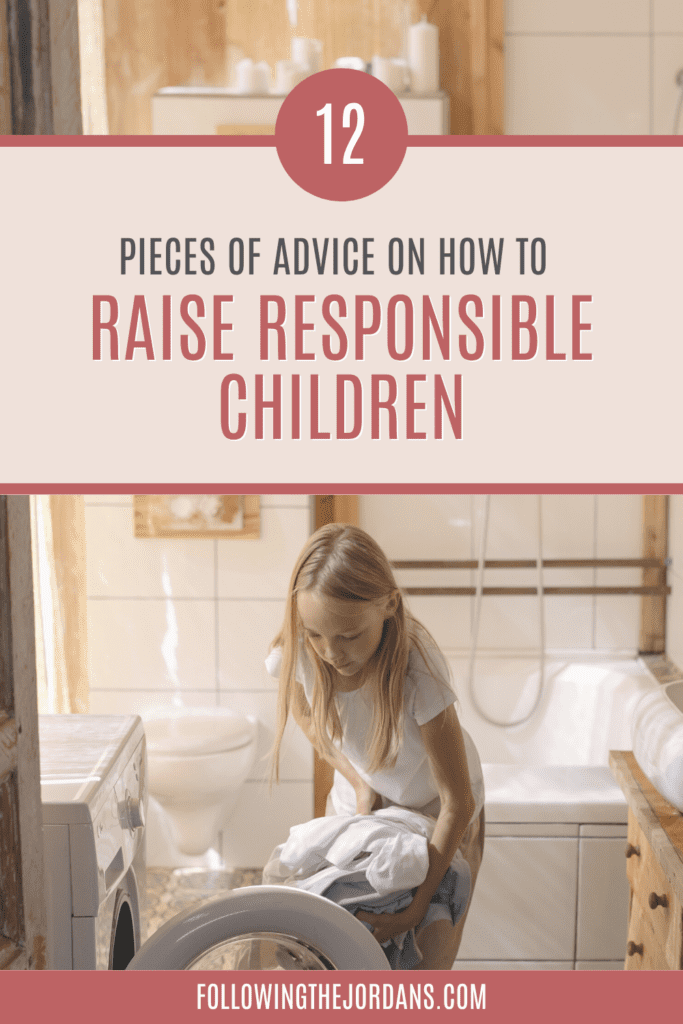
Related: How to Make School Mornings Easier: 12 Helpful Tips
Obedience vs. Responsible Children
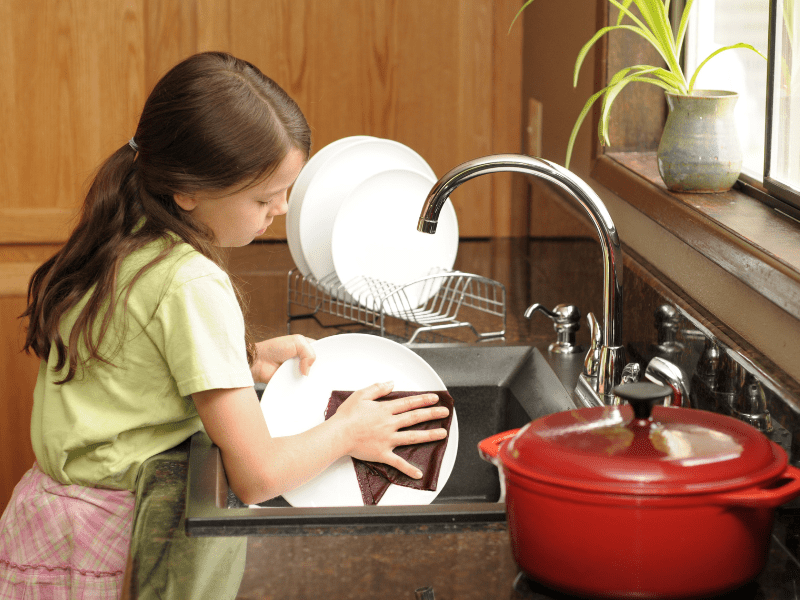
You might assume that raising obedient children is the same thing as raising responsible children. That’s far from the truth, but I used to think the same thing.
The reality is that kids have a mind of their own, and while it’s possible to create obedient children, that doesn’t mean they have a sense of responsibility. Obedience comes from fear or worrying of the consequences, but we want children who are responsible because it’s the right thing to do.
Is it possible to have both?
Absolutely!
Ultimately though, we want kids who grow into adults and need little guidance and instruction. They have a sense of responsibility and maturity. We don’t want kids who simply do what their parents say and that’s it.
However, creating responsible children takes time, coaching, and guidance. It requires parents modeling the appropriate behaviors themselves and showing kids that being a responsible member of the family is the norm, not the exception.
12 Tips: How to Raise Responsible Children
1. Model Responsible Behavior
Let’s start with the utmost important tip to raise responsible children – model the behavior yourself. Children are little sponges, and they learn from your behaviors and values.
For example, when you teach your child not to talk poorly about others but do so yourself, they receive conflicting messages. It’s always best to model the behavior you expect from them.
2. Create the Expectation That We Clean Up Our Messes
One of the biggest issues that parents have is the mess that their kids create, but you can raise responsible children by teaching your child that we clean up our own messes.
Start by helping your child clean up their messes until he comfortably learns how to do so. Not only will this help your child learn faster, but it won’t feel so much like a chore. Over time, this becomes a habit that your child takes with them as an adult.
However, you’ll still need to remind them, even when you have a teenager. Keep it lighthearted and normal, because expecting responsibility IS the norm.
3. Give Ways to Contribute to the Family Good
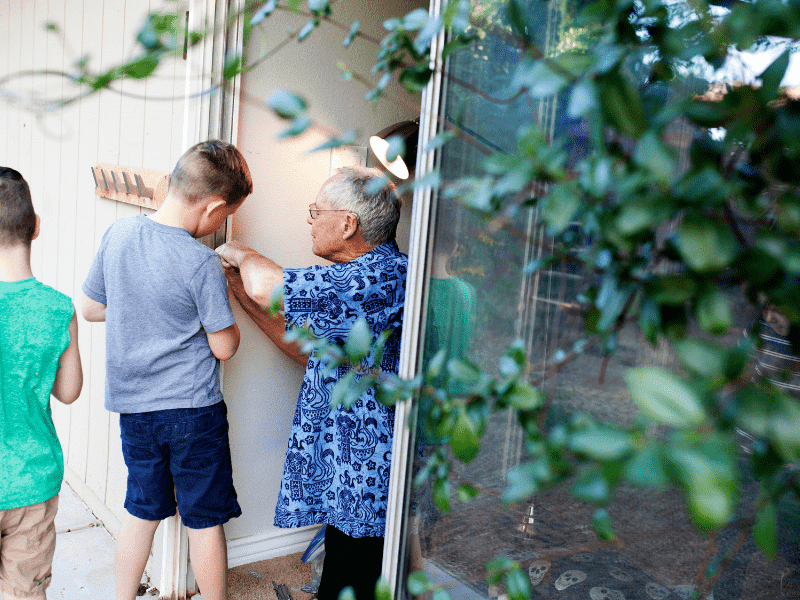
Something else that kids should learn from the start is that all family members contribute to everyone in the house in some way regularly. Kids learn that they contribute in multiple ways, whether that is being kind to each other or contributing to the overall family.
This takes time to foster in children.
Start by having your child put napkins on the kitchen table, and your preschooler can groom the dog. Your older kids can run the dishwasher, water house plants, and fold laundry.
4. Have Daily Chores
Daily chores may seem like a drag, but it helps teach children how to be responsible. Kids need to learn how to be responsible for themselves.
It’s important that parents assign chores that are mindful of their child’s age. You never want to assign tasks that are too difficult for your child.
5. Let Your Child Help
Toddlers and preschoolers are always willing to help, and while at times, letting them help feels more like a burden than helping, it’s still important to let them help.
When your three-year-old wants to help fold laundry, let him do so! That might mean your job goes from five to ten minutes, but that’s okay!
Letting your child help from an early age teaches initiative and responsibility. They don’t have to worry about the outcomes (because you fix them when they aren’t looking!).
6. Don’t Back Out of Commitments
Did your child agree to help their grandparent clean up the yard? Don’t let them back out of their commitment!
While this seems like a harmless thing at first, we all know flaky adults who back out of commitments at the last minute. When you’re on the receiving end of that, it is frustrating and may lead to destroyed friendships. Adults won’t tolerate flakiness, and teaching your child to back out when they don’t want to do something anymore could interfere with their ability to hold down a job.
7. Encourage Your Child to “Do It Themselves”
We all know kids love to say “I’ll do it myself” and parents often say no because it means more work for you. However, toddlers and preschoolers want to learn and master the skills they see their parents working on daily.
While it’s okay to say no sometimes, work in time to encourage your child to work alongside you. Not only does this encourage more bonding time for the both of you, it also motivates your child to keep contributing to the family.
8. Create Predictable Routines and Structures
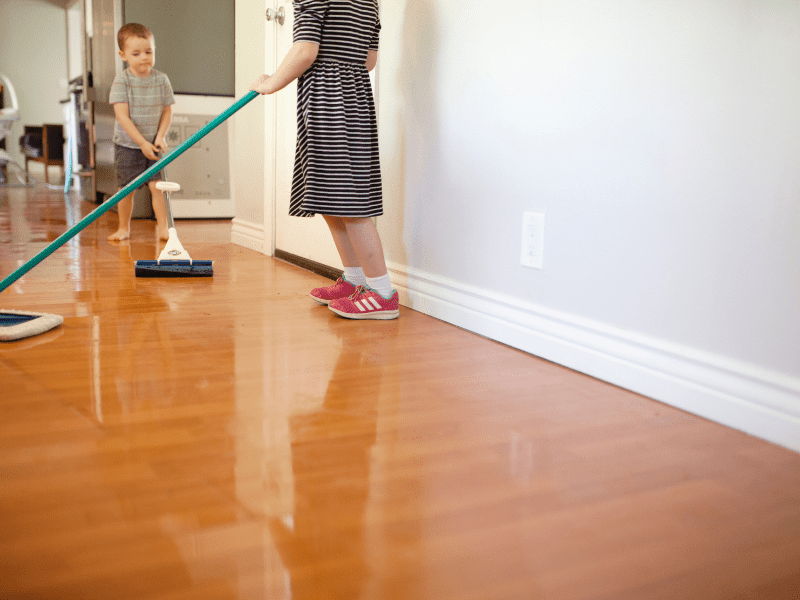
Children thrive on predictable routines and structures; it’s a crucial part of their lives for many reasons. This gives them opportunities to manage themselves.
For example, they learn how to master their bedtime routine and how to clean up toys before heading up to bed. This repetition will help your child later, as an adult, with household routines like working on laundry and cooking meals.
9. Teach Your Child to Repair Their Relationships
It’s tempting to force your child to apologize when he hurts his sibling’s feelings, but that doesn’t teach anything. Their apology won’t be sincere; they won’t mean it.
Once he is okay talking about what led to the incident, ask what he thinks could be done to fix the problem. He might be ready to apologize, or he may feel embarrassed by his behavior. Teach your child to help their sibling with chores or give them a big hug when they hurt their siblings’ feelings.
Your child also might resist repairing the relationship with their friend or sibling; this often happens from resentment, when your child feels as if they were wronged or hurt. So, they don’t want to repair the situation.
Working through this takes time, and you need to work on listening to your child’s feelings. However, you need to insist they repair current interactions.
10. Let Your Child Work for Pay
All kids need to have the experience of working for pay because it teaches real responsibility. This typically starts between 8 and 10 years old, when kids are more capable of completing tasks the typically may not complete.
For example, your ten year old may weed the garden or wash your car, and make sure you pay for these tasks. As he gets older, he can offer to walk the neighbor’s dog or start shoveling snow around the neighborhood. These should always be age-appropriate.
11. Work on Teaching Your Child the Value of Money
As your child grows up, teaching your child how to be responsible with money is a vital skill. Making bad financial decisions is a huge issue that your child may face in the future.
So, one way to ensure you raise responsible children is to teach them the basics of money management early in life. Give them an allowance and show them how to save for things they really want in the future.
12. Let Consequences Take Their Course
Sometimes, your child does something that leads to a consequence, but parents have the desire to protect their child. They want to save them from the uncomfortableness of the consequence.
However, doing this doesn’t allow your child to learn, and it also teaches them that the rules don’t always apply to them. Forgetting to turn in an assignment results in a bad grade – it won’t ruin their college chances, don’t worry – and it helps them learn that they need to make sure they’re responsible about it in the future.
Figuring out how to raise responsible children is important, and it takes time. This is a process that takes nearly two decades until your child leaves your home, but eventually, you will see the fruits of your hard work. Your child will thank you!

